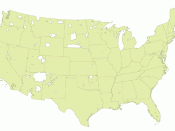Sin Taxes The squeeze is on. Demand for government to decrease it's reliance on sales, property, and income taxes as sources of revenue is continuing to rise, leaving policy makers scrambling for new, less painful sources of revenue. Also going up are the costs of providing public services, entitlement programs, and conducting the other various functions of government. This upward spiral requires that they simultaneously look for better, cheaper, and more effective spending strategies. It is no wonder that policy makers are starting to feel the pinch. To make things all the more uncertain, we are facing a federal debt that seems to swell exponentially on a daily basis and a national economy with the moodiness and sensitivity of a manic-depressive. All in all, it is a situation that demands a whole new degree of creativity from all levels of government.
This cathartic hour in the fiscal evolution of our nation has pressured out a myriad of new and unorthodox strategies for spending cuts and new sources of revenue.
One group of these new strategies, termed "sin taxes", (so called because they are directly associated with what is traditionally considered the seedier side of American life), are gaining widespread popular support and are being considered a silver lining without the dark clouds by some in the federal government and by many financially strapped state legislatures.
Sin taxes are really two different types of revenue strategies with two different outlooks, combined under one name. The first of the two categories is government sponsored lotteries and legalized gambling. The second category is excise taxes. The two differ in that legalized gambling tends to be an encouraged vice, an attitude fostered by the states' hope of improving revenues. On the other side, excise taxes are often levied on products considered socially unvirtuous, products...


